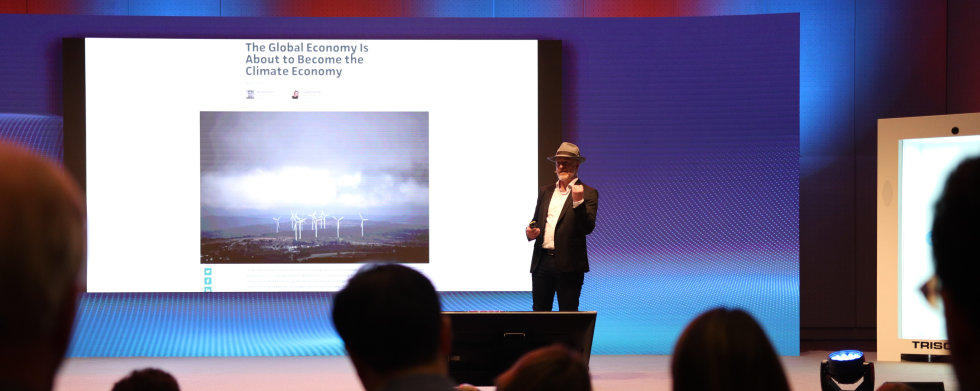

Influencer, Thought Leader, and Storyteller focusing on Sustainability, Supply Chain, and Technology
Available For: Advising, Authoring, Consulting, Influencing, Speaking
Travels From: Spain
Speaking Topics: Sustainability, Supply Chain, Energy Transition,
| Tom Raftery | Points |
|---|---|
| Academic | 0 |
| Author | 1697 |
| Influencer | 388 |
| Speaker | 90 |
| Entrepreneur | 0 |
| Total | 2175 |
Points based upon Thinkers360 patent-pending algorithm.
Tags: AI, Sustainability, Supply Chain
 Transforming the Energy Landscape: The Critical Role of Technology in Sustainable Grids
Transforming the Energy Landscape: The Critical Role of Technology in Sustainable Grids
Tags: IoT, Supply Chain, Sustainability
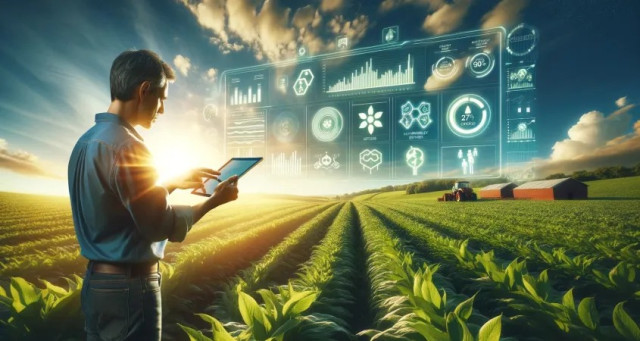 Feeding the World, Saving the Earth: Transforming Agriculture with Tech
Feeding the World, Saving the Earth: Transforming Agriculture with Tech
Tags: IoT, Supply Chain, Sustainability
Tags: AI, Sustainability, Supply Chain
Tags: AI, Sustainability, Supply Chain
Tags: AI, Sustainability, Supply Chain
Tags: AI, Sustainability, Supply Chain
Tags: AI, Sustainability, Supply Chain
Tags: AI, Sustainability, Supply Chain
Tags: AI, Sustainability, Supply Chain
Tags: AI, Sustainability, Supply Chain
Tags: AI, Sustainability, Supply Chain
Tags: AI, Sustainability, Supply Chain
Tags: AI, Sustainability, Supply Chain
Tags: AI, Sustainability, Supply Chain
Tags: AI, Sustainability, Supply Chain
Tags: AI, Sustainability, Supply Chain
Tags: AI, Sustainability, Supply Chain
Tags: AI, Sustainability, Supply Chain
Tags: AI, Sustainability, Supply Chain
 Unlocking the Power of Accurate ESG Data Measurement and Reporting: SAP’s Green Ledger
Unlocking the Power of Accurate ESG Data Measurement and Reporting: SAP’s Green Ledger
Tags: Sustainability, Leadership, Climate Change
Tags: AI, Sustainability, Supply Chain
Tags: AI, Sustainability, Supply Chain
Tags: AI, Sustainability, Supply Chain
Tags: AI, Sustainability, Supply Chain

Tags: AI, Autonomous Vehicles, Sustainability

Tags: Digital Transformation, HealthTech, IoT

Tags: AI, Blockchain, Digital Transformation

Tags: Digital Disruption, Digital Transformation, Innovation

Tags: Digital Disruption, Digital Transformation, Emerging Technology

Tags: Digital Disruption, Digital Transformation, Emerging Technology

Tags: Digital Disruption, Emerging Technology, IoT
Tags: Digital Transformation, IoT, Sustainability

Tags: Digital Transformation, Emerging Technology, IoT

Tags: Future of Work, HR, Sustainability

Tags: Cloud, Digital Transformation, IoT

Tags: Digital Transformation, Emerging Technology, IoT
 IOT’S ECOSYSTEM OF TECHNOLOGY WITH TOM RAFTERY OF SAP
IOT’S ECOSYSTEM OF TECHNOLOGY WITH TOM RAFTERY OF SAP
Tags: AI, Blockchain, Emerging Technology, IoT
 What will the world look like 10 years from now?
What will the world look like 10 years from now?
Tags: Digital Disruption, Digital Transformation, Emerging Technology

Tags: Cybersecurity, Digital Transformation, IoT
 Tom Raftery: "In ten years technology will have transformed the world"
Tom Raftery: "In ten years technology will have transformed the world"
Tags: Digital Transformation, HealthTech, Mobility

Tags: Digital Transformation, Emerging Technology, Innovation

Tags: Digital Disruption, Innovation, IoT
Tags: Emerging Technology, Innovation, IoT
Tags: Emerging Technology, Innovation, IoT
Tags: Cybersecurity, Digital Transformation, IoT
 Digital disruption driving force behind 4th industrial revolution
Digital disruption driving force behind 4th industrial revolution
Tags: Digital Transformation, Emerging Technology, IoT
 Innovation at Work: The Impact of AI and IoT on Supply Chain Sustainability
Innovation at Work: The Impact of AI and IoT on Supply Chain Sustainability
Tags: IoT, Supply Chain, Sustainability
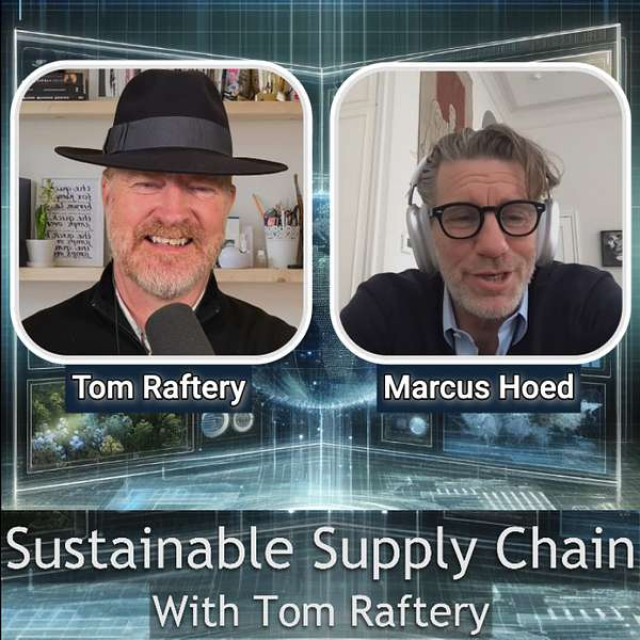 Eco-Logistics Unveiled: DutchX's Electrifying Approach to Delivery
Eco-Logistics Unveiled: DutchX's Electrifying Approach to Delivery
Tags: IoT, Supply Chain, Sustainability
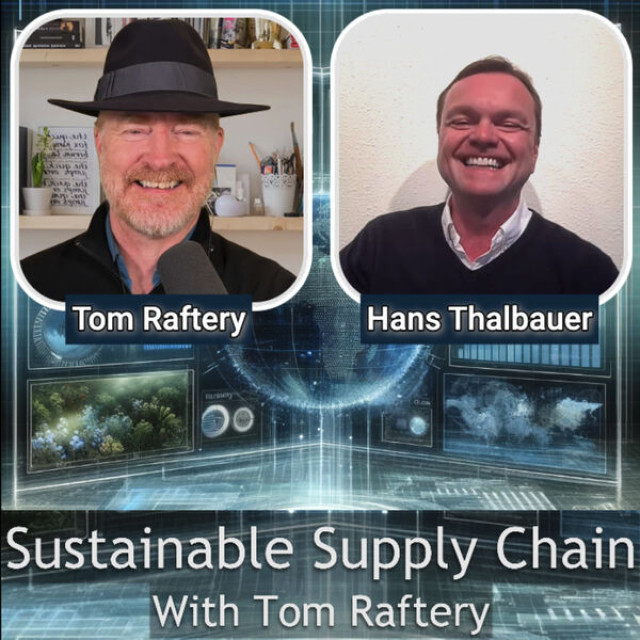 The Future of Supply Chains: AI, Sustainability, and the Circular Economy
The Future of Supply Chains: AI, Sustainability, and the Circular Economy
Tags: IoT, Supply Chain
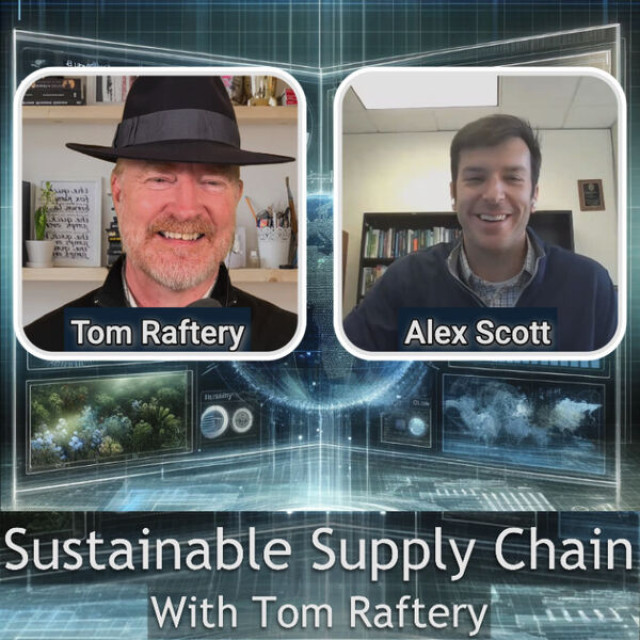 The Road to Zero: Rethinking Logistics for a Sustainable Tomorrow
The Road to Zero: Rethinking Logistics for a Sustainable Tomorrow
Tags: IoT, Supply Chain
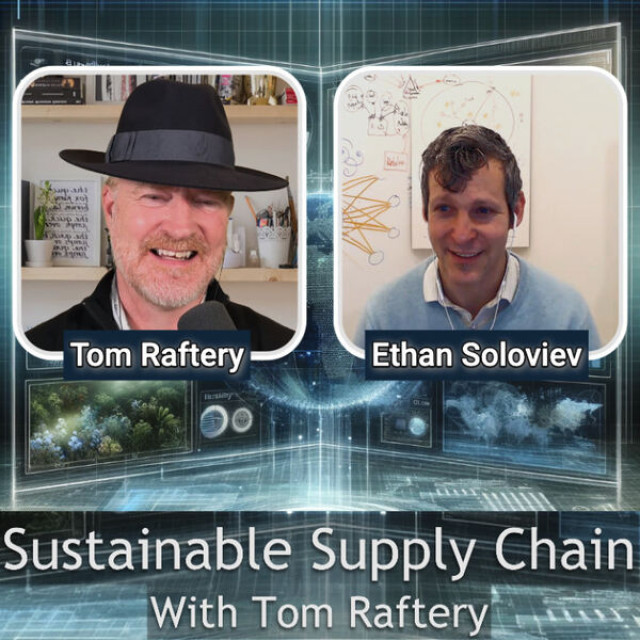 Green Bytes: How Technology is Transforming Food Sustainability
Green Bytes: How Technology is Transforming Food Sustainability
Tags: IoT, Supply Chain
Tags: IoT, Supply Chain
Tags: IoT, Supply Chain
Tags: IoT, Supply Chain
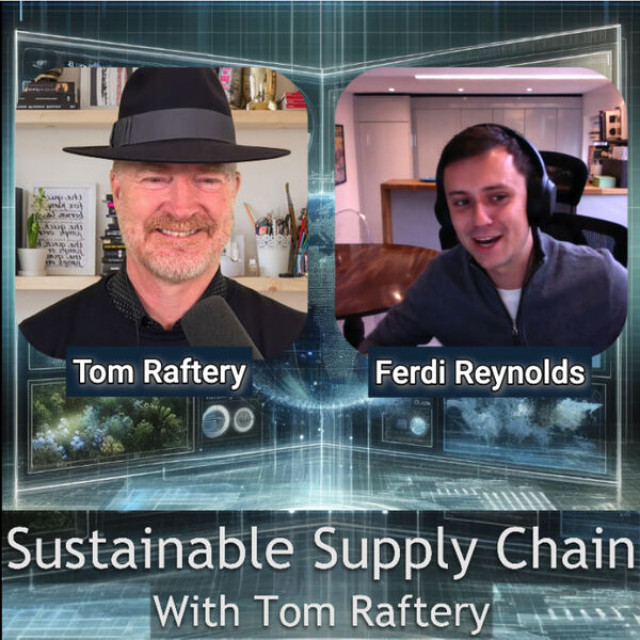 The Future of Manufacturing: Making Supply Chains Sustainable with Industry 4.0
The Future of Manufacturing: Making Supply Chains Sustainable with Industry 4.0
Tags: IoT, Manufacturing, Supply Chain
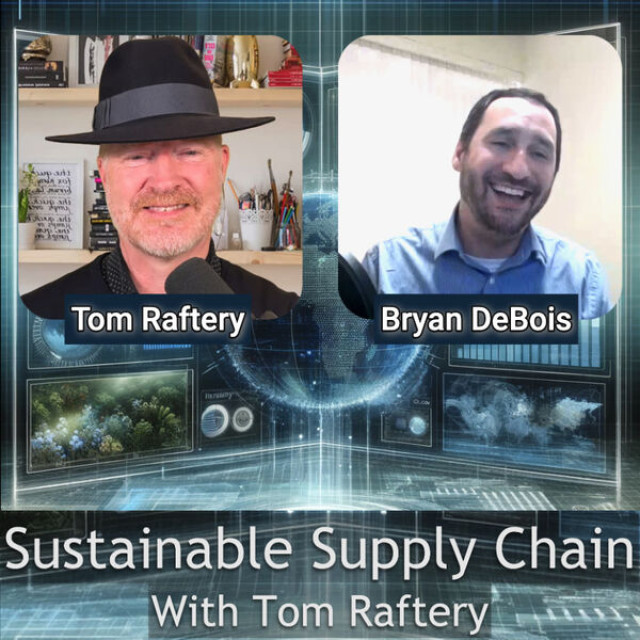 Beyond Efficiency: How AI is Crafting a Greener Manufacturing Era
Beyond Efficiency: How AI is Crafting a Greener Manufacturing Era
Tags: IoT, Manufacturing, Supply Chain
Tags: IoT, Supply Chain
Tags: IoT, Supply Chain
Tags: IoT, Supply Chain
Tags: IoT, Supply Chain
Tags: IoT, Supply Chain, Retail
Tags: IoT, Supply Chain
Tags: IoT, Supply Chain
Tags: IoT, Supply Chain
Tags: IoT, Supply Chain
Tags: IoT, Supply Chain
Tags: IoT, Supply Chain
Tags: IoT, Supply Chain
Tags: IoT, Supply Chain, Innovation
Tags: IoT, Supply Chain, Innovation
Tags: IoT, Supply Chain

Tags: IoT, Renewable Energy
Date : December 06, 2023
Date : October 24, 2023
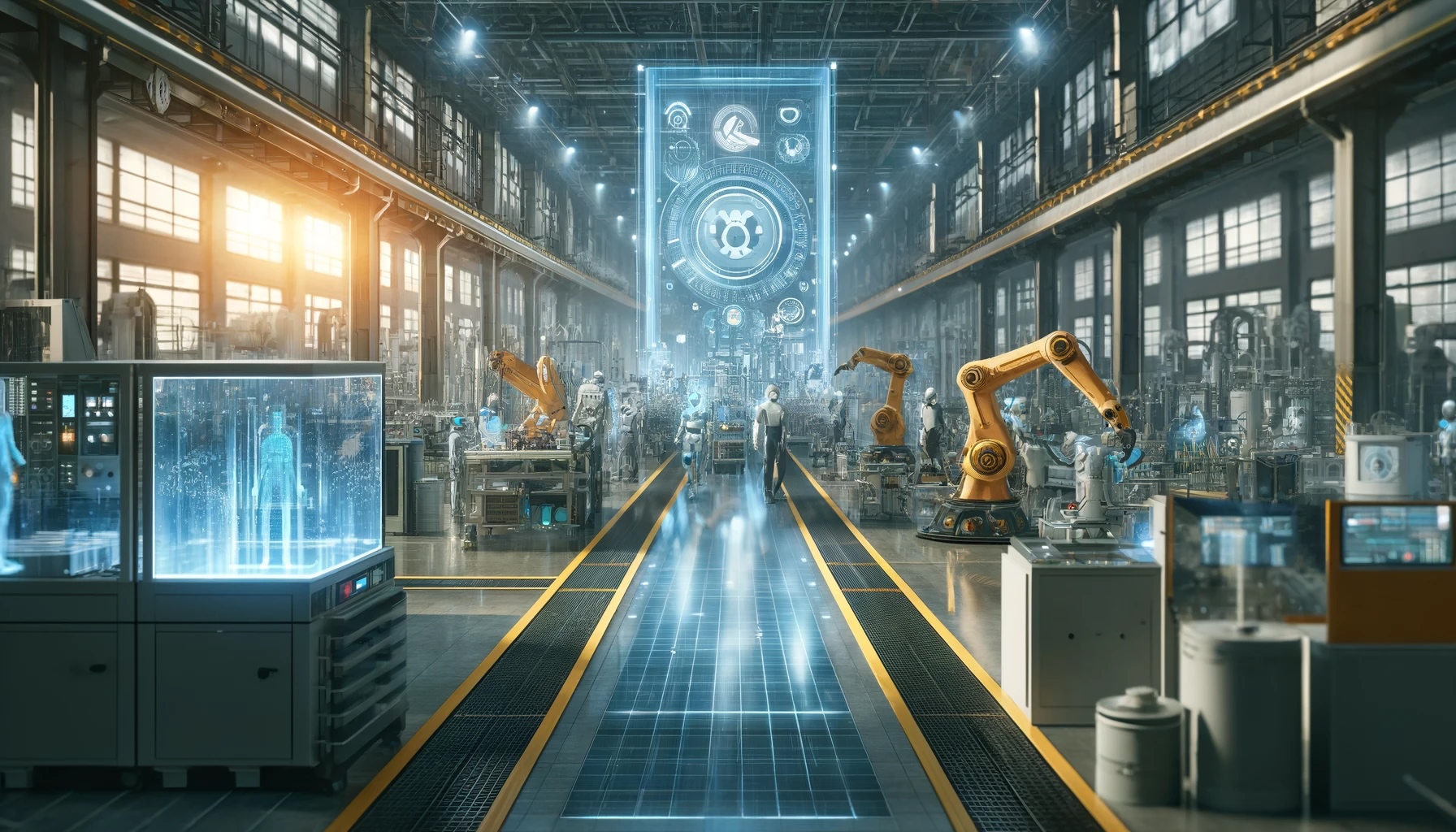 Revolutionising Manufacturing: AI + IoT = The Sustainable Factory of Tomorrow
Revolutionising Manufacturing: AI + IoT = The Sustainable Factory of Tomorrow
In the rapidly evolving landscape of modern manufacturing, the convergence of artificial intelligence (AI) and the Internet of Things (IoT) is not just a trend—it's a transformative movement. As host of the Sustainable Supply Chain Podcast, I've had the privilege of engaging with leading voices in this revolution. A recent discussion with Bryan Merckling, CEO of Thinaer, offered profound insights into how AIOT (the amalgamation of AI and IoT) is redefining efficiency, reducing waste, and paving the way for a more sustainable manufacturing industry.
The AIOT Advantage
The power of AIOT lies in its ability to make manufacturing processes smarter and more connected. By integrating AI's predictive analytics with IoT's network of sensors and devices, manufacturers can achieve unprecedented levels of operational efficiency. For instance, predictive maintenance, powered by AIOT, can forecast equipment failures before they occur, significantly reducing downtime and maintenance costs. According to a study by Deloitte, predictive maintenance can decrease maintenance costs by up to 10% and increase equipment uptime by up to 20%.
Moreover, AIOT enables real-time tracking and monitoring of assets, from raw materials to finished products. This visibility not only enhances supply chain efficiency but also contributes to a substantial reduction in waste. By precisely tracking inventory and production processes, companies can minimize overproduction and surplus inventory, two major sources of waste in manufacturing.
A Leap Towards Sustainability
Perhaps the most compelling aspect of AIOT is its potential to drive sustainability in manufacturing. The industry, historically known for its significant environmental footprint, is under increasing pressure to adopt greener practices. Here, AIOT emerges as a potentially powerful solution. By optimizing energy use and reducing waste, AIOT technologies can significantly lower the environmental impact of manufacturing operations.
One striking example shared by Merckling involves the use of energy-efficient sensors that monitor and optimize energy consumption across manufacturing facilities. These sensors can lead to a considerable reduction in energy waste, aligning manufacturing practices with sustainability goals. Additionally, the advent of battery-less sensors, powered by ambient energy, marks a significant step towards reducing the environmental burden of sensor technology itself.
The Road Ahead
The journey towards a sustainable manufacturing sector powered by AIOT is both exciting and challenging. Implementing these technologies requires not just significant investment but also a cultural shift within organizations. Manufacturers must embrace innovation and be willing to experiment with new approaches to production and operations management.
The potential rewards, however, justify the effort. Beyond operational efficiency and sustainability, AIOT can enhance product quality, improve worker safety, and open new avenues for innovation. As the technology matures, we can expect to see even more creative uses of AIOT, further cementing its role in the future of manufacturing.
A Call to Action
For industry professionals, the message is clear: the time to act is now. The convergence of AI and IoT offers a unique opportunity to reshape manufacturing for the better. It's an opportunity to drive efficiency, foster sustainability, and create a more resilient and flexible supply chain.
If you're intrigued by the possibilities of AIOT in manufacturing and keen to delve deeper into this topic, I encourage you to listen to the full episode of the Sustainable Supply Chain Podcast with Bryan Merckling. Gain insights from a leader working in this space, and discover how your organization can work towards a smarter, greener future.
In embracing AIOT, we're not just transforming manufacturing; we're taking a significant step towards a more sustainable world. Let's lead the charge together.
Tags: AI, IoT, Sustainability
 FinTech's Role in the Climate Crisis: Introducing a Currency Backed by Carbon Reduction
FinTech's Role in the Climate Crisis: Introducing a Currency Backed by Carbon Reduction
In an era where the impacts of climate change are increasingly impossible to ignore, innovative solutions that bridge the gap between technology and sustainability are more crucial than ever. A recent episode of the Climate Confident podcast, which I had the pleasure of hosting, shed light on an intriguing approach that uses finance to combat climate change. My guests, Joe Pretorius and Paul Rowett, discussed their pioneering project, Toco, a currency backed by carbon mitigation outcomes, supported by the independent, non-profit Carbon Reserve and advocated for by the Carbon is Moneymovement. This conversation not only highlighted the potential of financial technology (FinTech) in the fight against global warming but also underscored the vital role of sustainability in reshaping our financial systems.
The intersection of finance and technology has birthed FinTech, a sector that's revolutionising banking, investment, and now, sustainability. Toco represents an innovative model where digital currency is directly tied to actions that reduce carbon emissions. This model is groundbreaking: it transforms every transaction into a step towards combating climate change, making the act of spending an act of saving the planet.
The concept is straightforward yet profound. By backing currency with verified carbon reduction efforts, such as reforestation projects, mangrove regeneration, or advancements in carbon capture technology, Toco aims to provide a tangible way for individuals and businesses to contribute to environmental sustainability. This initiative is a testament to the potential of leveraging financial markets to support ecological restoration and conservation efforts on a global scale.
The success of Toco's pilot in Stellenbosch, and its current expansion into Europe, signifies a growing recognition of the importance of sustainable finance. As Joe and Paul shared, the initiative has already mobilised communities and businesses, proving that a currency can do more than facilitate transactions—it can also foster a culture of sustainability and act as a catalyst for widespread environmental action.
This approach is not isolated. Around the globe, there's a surge in green bonds, sustainable investments, and eco-friendly startups. For instance, the rise in impact investing, which focuses on generating positive environmental and social impacts alongside financial returns, is evidence of a broader shift towards sustainability in the financial sector. These trends reflect a growing awareness among investors and consumers alike that financial decisions have far-reaching implications for the planet.
However, Toco's model goes a step further by integrating carbon mitigation directly into the fabric of daily financial transactions. This innovative approach not only amplifies the impact of individual actions but also challenges traditional financial and economic models to evolve towards sustainability.
The significance of this cannot be overstated. Climate change poses an existential threat, and the window for action is narrowing. Solutions like Toco offer a glimpse into a future where finance and technology unite to address this crisis head-on. They demonstrate that with creativity and innovation, the tools for making a significant impact are already at our fingertips.
The integration of FinTech and sustainability exemplifies how reimagining the purpose and potential of finance can lead to meaningful environmental progress. But this is just the beginning. The journey towards a sustainable financial system is ongoing, and it requires the participation and support of individuals, businesses, and governments worldwide.
If you're intrigued by the potential of using finance to fight climate change and want to delve deeper into the strategies discussed in this episode, I encourage you to listen to the full conversation with Joe and Paul on the Climate Confidentpodcast. Their insights offer valuable perspectives on how we can leverage financial innovations to make a real difference for our planet.
let us remain committed to the vision of a world where economic activity supports, rather than undermines, our planet's health and well-being
The fight against climate change is a collective endeavour, and it's clear that financial technology will play a pivotal role in shaping our shared future. As we continue to explore and implement sustainable financial solutions, let us remain committed to the vision of a world where economic activity supports, rather than undermines, our planet's health and well-being. Together, through innovation and action, we can pave the way towards a more sustainable, resilient, and prosperous world for all.
Originally published on TomRaftery.com
Tags: Climate Change, FinTech, Sustainability
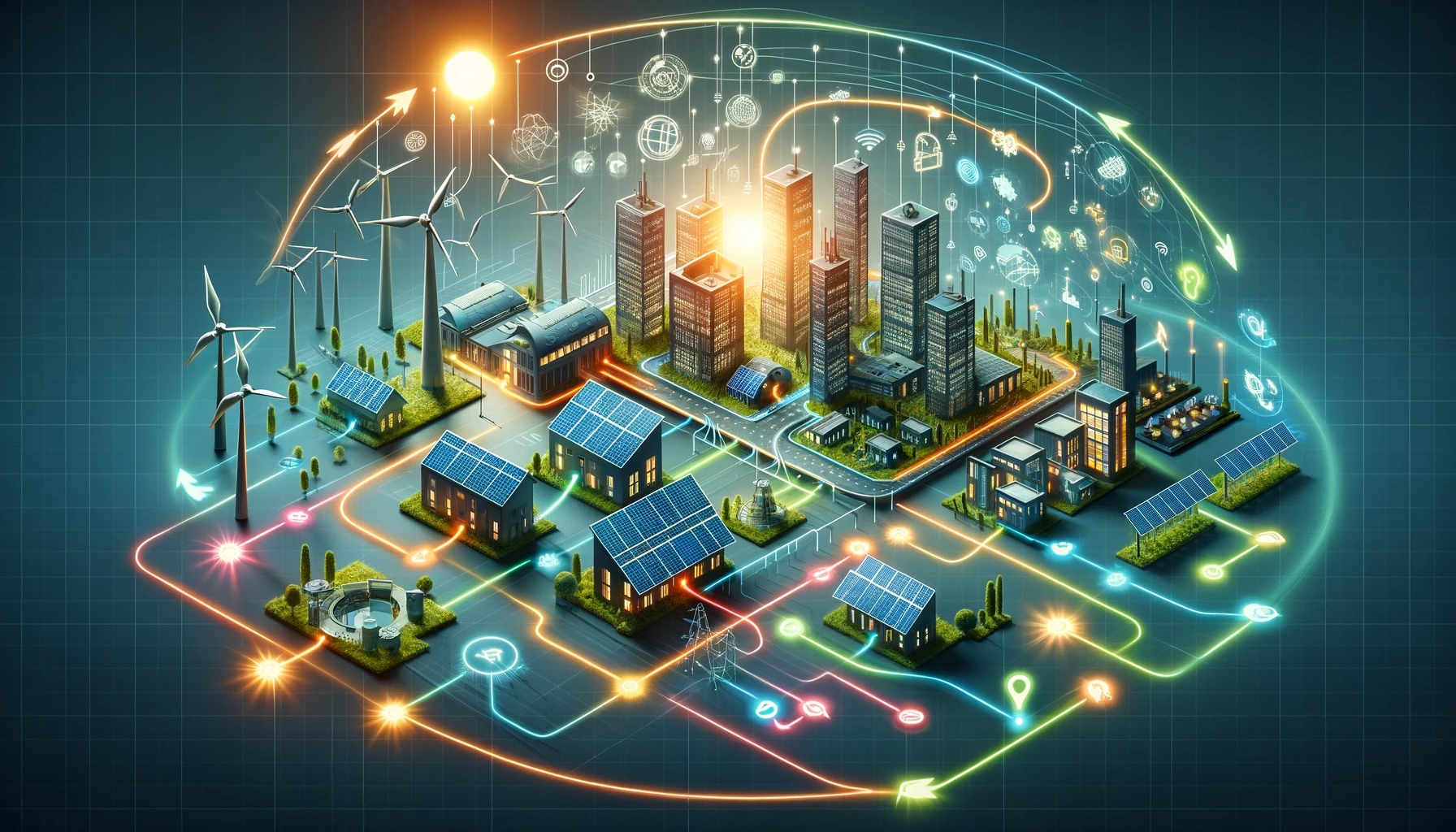 Sustainability Through Innovation: The Siemens Strategy for Cutting Carbon
Sustainability Through Innovation: The Siemens Strategy for Cutting Carbon
In the quest for sustainability, the confluence of technology and innovation offers a beacon of hope. In the latest episode of the Climate Confident podcast, I had an enlightening conversation with Thomas Kiessling, CTO of Siemens' Smart Infrastructure Division. This discussion provided a deep dive into how Siemens is leveraging technology to spearhead significant improvements in energy efficiency and emissions reduction across various sectors. However, the implications of our conversation extend far beyond Siemens, touching on a universal potential for technology to drive sustainability across the globe.
Siemens' approach, exemplifies a commitment to setting and achieving ambitious sustainability targets. By halving their CO2 footprint by 2020 and setting their sights on net zero emissions by 2030, Siemens is not just advocating for a greener future; they're building it. Their strategies encompass a broad spectrum of initiatives, from eco-designs of products to innovations in smart infrastructure that facilitate the integration of renewable energy sources and enhance overall energy efficiency.
The significance of such technological interventions cannot be overstated. In commercial and industrial applications, where energy consumption is immense, the potential for efficiency improvements is critical. For instance, Siemens' focus on smart infrastructure plays a pivotal role in optimizing energy use in commercial buildings, which are notorious for their substantial energy demands. The deployment of IoT and AI technologies in building management systems can lead to energy savings of 30-50%, showcasing how intelligent design and operation can drastically reduce carbon footprints.
Beyond Siemens, the global landscape offers numerous examples of technology-driven sustainability. From the proliferation of solar and wind power as cost-effective, renewable energy sources to the rise of electric vehicles challenging the dominance of fossil fuels, innovation is paving the way for a cleaner, more sustainable world. The European Union, for instance, has made significant strides in increasing its renewable energy capacity, with renewables accounting for more than 44% of the bloc's electricity in 2023—a testament to the transformative power of technology in the energy sector.
Yet, the journey towards sustainability is fraught with challenges. The Infrastructure Transition Monitor report also sheds light on the gaps and obstacles on the path to decarbonisation. While technological solutions exist, their adoption and implementation at scale remain key hurdles. This highlights the need for a concerted effort from businesses, governments, and individuals to embrace these technologies and drive the systemic changes required to mitigate climate change.
In this critical moment for our planet, the story of Siemens and the broader narrative of technological innovation in sustainability serve as both a blueprint and a call to action. The potential for technology to drive significant improvements in energy efficiency and reduce emissions across various sectors is not just promising; it's essential for the future we aspire to create.
For those intrigued by the potential of technology to foster a sustainable future and the comprehensive strategies Siemens is employing to turn this potential into reality, I encourage you to listen to the full episode of the Climate Confident podcast. It's a deep dive into the innovative approaches and solutions that are paving the way for a more sustainable world.
The time for action is now. By harnessing the power of technology, we can make substantial strides in our collective journey towards sustainability. Let us embrace these innovations and work together to build a greener, more resilient future.
Tags: AI, Climate Change, Sustainability
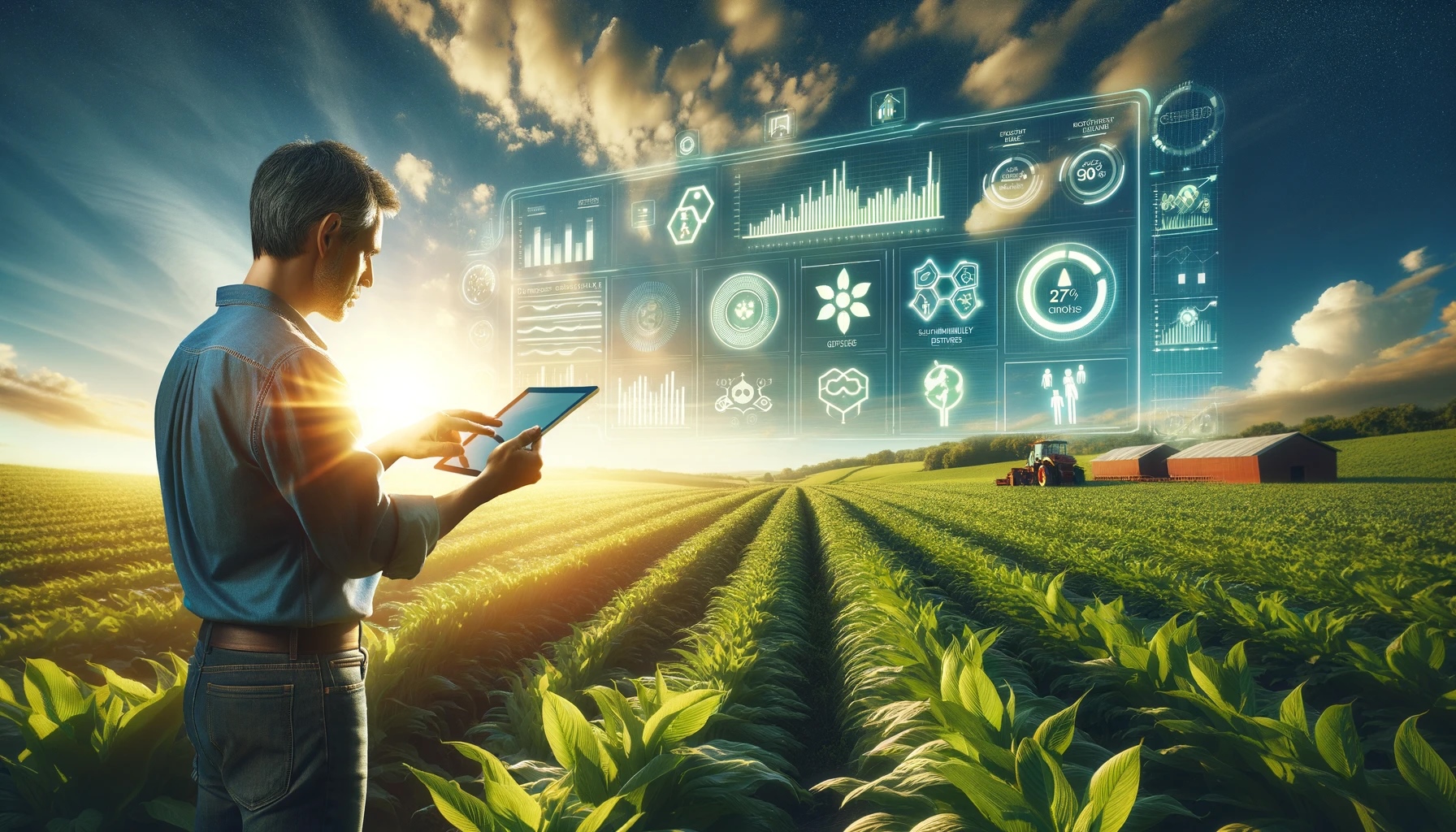 Feeding the World, Saving the Earth: Transforming Agriculture with Tech
Feeding the World, Saving the Earth: Transforming Agriculture with Tech
In a world grappling with climate change, the call for sustainability in the food and agriculture industries has never been more urgent. In my recent dialogue with Ethan Soloviev, Chief Innovation Officer at HowGood, on the Sustainable Supply Chain Podcast, underscored this imperative shift. As a thought leader navigating the intersections of agriculture, innovation, and sustainability, Ethan provided invaluable insights into transforming these critical sectors for the betterment of our planet.
The global food system, intricately linked with agriculture, is at the heart of numerous environmental issues, from water usage to deforestation. It's responsible for approximately 37% of global greenhouse gas emissions, with agriculture occupying nearly 50% of the habitable land. The pressing need to feed a growing population sustainably calls for innovative solutions and strategic interventions across the entire supply chain.
HowGood is part of this transformation, leveraging the world's largest database on food product sustainability. This powerful tool aids companies in making informed decisions by providing data on carbon footprints, water usage, biodiversity impacts, and labor risks. Ethan's work illustrates a pivotal trend: the shift from mere data collection to actionable sustainability insights. For example, companies like Danone and retailers such as Ahold Delhaize are using this data to reevaluate their products and operations, aiming for sustainability and regeneration.
This initiative is not just about environmental conservation; it's about creating resilient supply chains that can withstand and adapt to global changes. Sustainable practices in agriculture and food production offer numerous benefits, including reduced carbon emissions, enhanced soil health, and improved biodiversity. Regenerative agriculture practices, such as cover cropping and reduced tillage, sequester carbon in the soil, mitigating climate change effects.
However, the transition towards sustainability is not without challenges. It requires a concerted effort from all stakeholders, including farmers, food companies, policymakers, and consumers. Transparency and data accessibility are crucial for empowering these actors to make informed decisions. As Ethan pointed out, the development and adoption of artificial intelligence and machine learning technologies in this field hold the promise of scaling sustainability efforts like never before.
In addition to technological advancements, there's a growing need for policy frameworks that support sustainable practices. Initiatives such as the EU's Farm to Fork Strategy aim to make food systems fair, healthy, and environmentally friendly. However, global coordination and local action are necessary to ensure these policies translate into tangible results.
The transformation of the food and agriculture industries towards sustainability is not just an environmental imperative; it's a societal necessity. As we face the challenges of climate change, resource depletion, and population growth, the need for innovative solutions has never been greater. The work of Ethan Soloviev and HowGood exemplifies the kind of forward-thinking needed to drive this change.
For those interested in diving deeper into these critical discussions, I highly recommend listening to the full episode of the Sustainable Supply Chain Podcast featuring Ethan Soloviev. His insights, along with the strategies and technologies discussed, offer a roadmap for improving our world through sustainable food and agriculture practices.
The journey towards a sustainable future is a collective one, requiring the collaboration of individuals and organisations worldwide. As we continue to explore and implement innovative solutions, let's remain committed to transforming our food and agriculture systems for the health of our planet and future generations.
This post was originally published on TomRaftery.com
Tags: AI, Supply Chain, Sustainability
 Cutting Carbon, Boosting Profit: The Power of Open Platforms in Transforming Buildings
Cutting Carbon, Boosting Profit: The Power of Open Platforms in Transforming Buildings
In the rapidly evolving landscape of urban development and sustainability, the role of digital transformation in enhancing building efficiency and reducing carbon footprints cannot be overstated. A recent discussion I had with Rahul Chillar, Head of Building X at Siemens Smart Infrastructure, on the Climate Confident podcast, shed light on the revolutionary potential of open digital platforms like Building X in steering this transformation.
Buildings are at the heart of our fight against climate change. They account for approximately 34% of global energy use and 37% of global greenhouse gas emissions, according to the United Nations Environment Programme. The urgency to address these figures is clear, especially as urban populations continue to grow, expected to double by 2050. The path towards sustainable urban living lies in our ability to innovate and leverage technology to make our buildings smarter and more efficient.
Open platforms such as Building X represents a leap forward in this regard. They represent a paradigm shift towards digital platforms that enable the development and integration of various applications to enhance building operations. This approach allows for the collection and analysis of data across different systems within a building, from energy consumption to occupancy patterns, thereby enabling more informed decision-making and optimization of resources.
The importance of open platforms lies in their ability to foster innovation and collaboration. By allowing developers to build upon these platforms, we can create a suite of applications tailored to address specific challenges, from energy management to air quality monitoring. This ecosystem of apps enhances the platform's capabilities and, by extension, its impact on sustainability and efficiency.
For instance, an application developed on an open platform can use real-time data to adjust heating, ventilation, and air conditioning (HVAC) systems according to occupancy levels, significantly reducing energy consumption without compromising comfort. This is not a hypothetical scenario; similar technologies have already led to energy savings of 30-50% in commercial buildings, as reported by the American Council for an Energy-Efficient Economy [PDF].
Moreover, the financial argument for digital transformation in buildings is compelling. The Global Alliance for Buildings and Construction notes that green buildings can lead to significant operational savings, with an average reduction in energy use of 50% or more for certified green buildings. In a world where the cost of inaction on climate change is becoming increasingly evident, investments in technologies like Building X offer a clear path to profitability and sustainability.
The transition to smart, efficient buildings is not just a matter of technological capability but a strategic imperative. As we look towards 2030 and the goals set out in the Paris Agreement, the integration of digital transformation strategies into our building infrastructure is crucial. Open platforms like Building X pave the way for this transition, offering scalable solutions that can adapt to the evolving demands of sustainability and urban development.
If you're keen to delve deeper into how digital transformation can revolutionise building efficiency and contribute to our collective sustainability goals, I encourage you to listen to the full episode of the Climate Confident podcast with Rahul Chillar. Together, we can explore the innovative strategies and technologies shaping the future of our urban landscapes.
For more insights and discussions on sustainability and technology, follow the Climate Confident podcast and join our journey towards a more sustainable future.
The journey towards sustainable urban living is a collaborative effort, and every step towards energy-efficient buildings is a stride towards mitigating climate change. Let's embrace open digital platforms and the innovation they foster, for they hold the key to transforming our buildings and, by extension, our world.
This blog post was first published on TomRaftery.com
Tags: Digital Transformation, Smart Cities, Sustainability
 Spending with Purpose: How Your Wallet Can Change the World
Spending with Purpose: How Your Wallet Can Change the World
In the face of escalating environmental and social challenges, the power of the purse has never been more significant. As consumers, each transaction we make sends a message about the world we wish to live in. Yet, the opaque nature of corporate practices often leaves us navigating in the dark, uncertain of the real impact our spending has. It's this critical juncture between intention and action where Karma Wallet, co-founded by Kedar Karkare, shines a light, offering a groundbreaking approach to ethical finance.
In a recent episode of the Climate Confident Podcast, I had the privilege of delving into Karma Wallet's mission with Kedar. The conversation was not just enlightening but also a beacon of hope for those of us yearning to align our financial activities with our values. Karma Wallet's platform stands as a testament to the fact that when given the right tools, consumers can indeed make choices that support a more sustainable and equitable world.
Kedar's journey from evolutionary biology to fintech innovation underscores a critical message: change often comes from where it's least expected. With a background in science, Kedar brings a meticulous, data-driven approach to Karma Wallet, ensuring that the platform offers transparent and actionable insights into how companies measure up against social and environmental benchmarks. This initiative is pivotal, as it empowers consumers with the information needed to support businesses that are not just in the business of profit but also of making a positive impact.
However, Karma Wallet is more than just a platform for ethical spending. It's a movement towards creating a financial ecosystem where every transaction contributes towards the betterment of our planet and society. The significance of this cannot be overstated in a world where climate change, social inequalities, and environmental degradation are on the rise. By redirecting our spending towards companies that prioritize sustainability and ethical practices, we have the power to drive corporate change, encouraging more businesses to adopt practices that are good for both the planet and the people.
The introduction of Karma Wallet's debit card, which rewards consumers for ethical spending, is a game-changer. It's a practical tool that not only facilitates responsible consumption but also benefits the consumer, creating a win-win scenario. This innovative approach to finance exemplifies how technology and ethical considerations can merge to foster a more sustainable economy.
But the importance of investing in sustainability extends beyond individual benefits. Organisations worldwide are recognising the economic, environmental, and social advantages of sustainable practices. According to a report by the Business & Sustainable Development Commission, sustainable business models could open economic opportunities worth up to $12 trillion and create 380 million jobs by 2030. This potential for growth underscores the critical role of sustainability in driving future economic prosperity.
Empowering consumers with knowledge about the impact of their spending is not just about making better choices; it's about catalysing a broader shift towards sustainability across all sectors. As we continue to witness the devastating impacts of climate change and social injustice, the need for collective action has never been more urgent. Through platforms like Karma Wallet, consumers are equipped to take a stand, signalling to the market that sustainability and ethics are non-negotiable.
For those intrigued by the intersection of finance, sustainability, and technology, I invite you to listen to the full episode of the Climate Confident Podcast with Kedar Karkare. It's a deep dive into how we, as consumers, can leverage our financial power to foster a more just and sustainable world.
As we navigate this critical moment in history, let's remember the power we hold through our spending decisions. It's time to demand more from our financial institutions and support those that offer us the opportunity to contribute to a brighter, more sustainable future. Together, we can make a difference, one transaction at a time.
Originally published on TomRaftery.com
Tags: Climate Change, FinTech, Sustainability
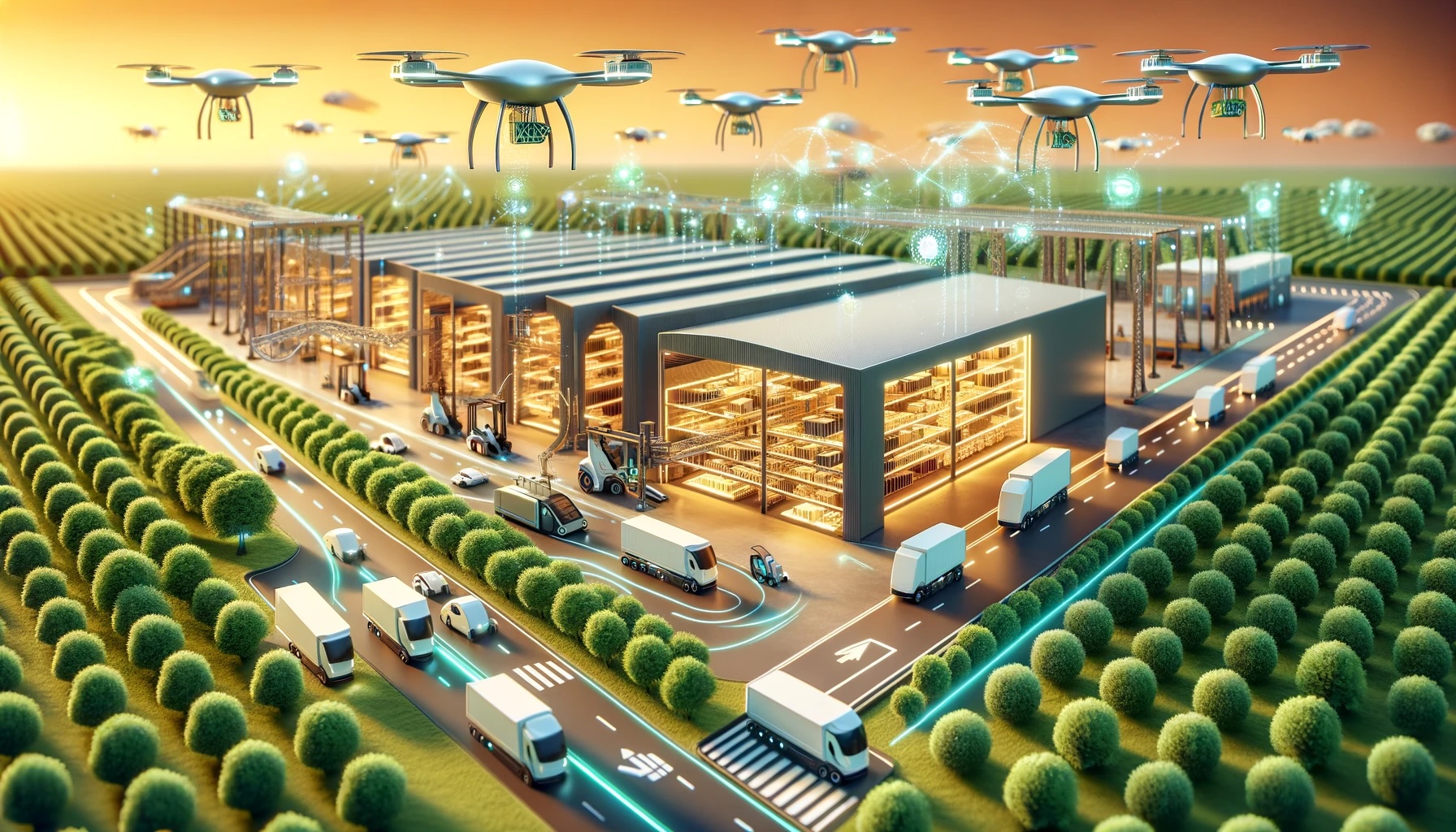 Sustainability as Strategy: Leveraging Environmental Goals for Competitive Advantage
Sustainability as Strategy: Leveraging Environmental Goals for Competitive Advantage
In an era where environmental concerns are increasingly becoming front and centre for businesses globally, the strategic importance of sustainability cannot be overstated. The conversation around sustainability has evolved from being primarily a discourse on corporate social responsibility to a critical business imperative. This shift is underpinned by the growing recognition of the need to collect primary data for Scope 3 emissions, the undeniable competitive advantage sustainability offers, and the incontrovertible positive return on investment (ROI) that sustainable practices yield for companies. These themes were expertly navigated in a thought-provoking dialogue with Jag Lamba, founder and CEO of Certa, on the Sustainable Supply Chain Podcast.
Scope 3 Emissions: The Data Imperative
Scope 3 emissions, which account for the majority of a company's greenhouse gas emissions, lie outside direct operations, making them challenging to measure and manage. However, as Lamba elucidates, leveraging primary data for these emissions is not just about compliance; it's about gaining actionable insights that can drive substantial emissions reductions across the value chain. The Carbon Trust highlights that for many sectors, Scope 3 emissions account for 70-90% of total emissions. Therefore, accurately tracking these emissions is paramount for companies aiming to genuinely reduce their carbon footprint and align with global initiatives like the Paris Agreement.
Sustainability as Competitive Advantage
Sustainability is transitioning from a nice-to-have to a must-have in the corporate playbook. It's a powerful driver of innovation, operational efficiency, and market differentiation. Harvard Business Review reports that sustainability is now a key driver of innovation, pushing companies to rethink products, processes, and business models. Furthermore, a growing body of research, including studies from Nielsen, demonstrates that sustainability-marketed products are driving product and category growth. Consumers are increasingly voting with their wallets, favouring companies that demonstrate genuine commitment to sustainability.
The Economic Case for Sustainability
The economic benefits of integrating sustainable practices into business operations are becoming increasingly clear. A comprehensive study by the University of Oxford and Arabesque Partners synthesised findings from over 200 sources and found that 88% of researched sources report that solid ESG practices result in better operational performance [PDF]. Additionally, 80% of the studies show that stock price performance is positively influenced by good sustainability practices. This data robustly counters the argument that sustainability is merely a cost, showcasing it as an investment with tangible financial returns.
Moreover, companies prioritising sustainability are witnessing lower cost of capital, according to research published by the Journal of Sustainable Finance & Investment. Investors are increasingly scrutinising companies through the lens of environmental, social, and governance (ESG) criteria, leading to a scenario where sustainability becomes a critical factor in investment decisions.
A Strategic Imperative
The insights shared by Jag Lamba reinforce the imperative for businesses to embed sustainability into their core strategy. Leveraging primary data for Scope 3 emissions, adopting sustainability as a competitive strategy, and recognising the ROI of sustainable practices are essential steps in this journey. As the International Energy Agency points out, achieving global energy and climate goals necessitates a comprehensive approach to sustainability, highlighting the role of innovation and technology in accelerating progress.
Conclusion: A Call to Strategic Action
For businesses seeking to navigate the sustainability landscape successfully, an analytical, data-driven approach is essential. The discussion with Lamba offers a blueprint for integrating sustainability into business models in a manner that promotes environmental stewardship while driving economic value.
For those interested in a deeper dive into the intersection of sustainability and business strategy, I encourage you to listen to the full episode with Jag Lamba. It's an investment in understanding how sustainability can be transformed from a challenge into an opportunity for global improvement and business success.
The journey towards sustainability is both a strategic necessity and an opportunity to redefine the future of business. As we forge ahead, let the data lead the way in creating a more sustainable, profitable, and equitable world.
Tags: Risk Management, Supply Chain, Sustainability
 Unleashing Change: How Citizen Advocacy is Rewriting the Global Agenda
Unleashing Change: How Citizen Advocacy is Rewriting the Global Agenda
In the complex tapestry of global challenges, from the pressing climate crisis to the enduring struggle against poverty, the need for strategic, systemic solutions has never been more pronounced. Temporary fixes, while offering momentary relief, fall short in addressing the root causes of these issues, necessitating a shift towards more sustainable, impactful strategies. This was the crux of my recent conversation with Michael Sheldrick, co-founder of Global Citizen and a vanguard of policy entrepreneurship, on the Climate Confident Podcast.
Temporary fixes often stem from a reactive mindset, addressing the symptoms of a problem rather than its underlying structure. While these solutions can provide immediate relief, they lack the durability and scope needed to enact lasting change. For instance, while charitable donations can alleviate aspects of poverty, they don't tackle the systemic economic disparities and policies that perpetuate the cycle of poverty.
In contrast, strategic, systemic solutions involve a proactive, comprehensive approach to problem-solving that targets the root causes of global challenges. These solutions require a deep understanding of the complex systems at play and the interdependencies that exist within them. They necessitate long-term thinking, collaboration across sectors, and, crucially, the mobilisation of citizen advocacy to drive policy change.
Michael Sheldrick's work with Global Citizen epitomises this approach. Through mobilising millions around the globe, Global Citizen advocates for policy changes that aim to tackle global issues at their core. By leveraging the power of collective action, the organisation has been instrumental in influencing policies and securing commitments from world leaders that aim to eradicate extreme poverty and mitigate climate change.
Citizen advocacy plays a pivotal role in driving systemic change. It empowers individuals to use their voices to influence policy and hold leaders accountable. The digital age has amplified this power, enabling grassroots movements to gain global traction and effect tangible policy changes. Innovative policy entrepreneurship, as demonstrated by Sheldrick, harnesses this potential, marrying strategic insight with actionable solutions to navigate the complexities of global policy-making.
The significance of this approach lies in its ability to foster sustainable, inclusive growth and development. By addressing systemic barriers and enacting policy changes, we can create a more equitable world. For instance, Global Citizen's campaigns on education, sanitation, and gender equality have not only raised awareness but have also spurred governmental action and investment in these critical areas.
This is of course evident in movements other than Global Citizen as well, such as the climate strikes initiated by Greta Thunberg, which galvanised millions around the world to demand action from their governments on climate change. These movements showcase the undeniable influence of collective action, proving that when citizens unite behind a cause, they can move mountains.
The conversation with Michael Sheldrick underscored a crucial realization: to drive meaningful global change, we must transcend beyond short-term fixes and embrace systemic solutions. This requires a collective effort from citizens, policymakers, and organisations to advocate for and implement strategies that address the complexities of global challenges.
Innovative policy entrepreneurship and citizen advocacy are at the heart of this transformation. They offer a blueprint for how we can leverage our collective power to effect significant, lasting change. By advocating for strategic, systemic solutions, we can tackle the root causes of global issues and pave the way for a more sustainable, equitable future.
To delve deeper into the strategies that can drive significant global change and to hear more from Michael Sheldrick on the power of policy entrepreneurship and citizen advocacy, I encourage you to listen to the full episode of the Climate Confident Podcast. Together, we can be part of the solution, advocating for systemic changes that address the root causes of our most pressing global challenges.
Your engagement and advocacy can make a difference. Join us in this crucial conversation and be part of the movement towards a better, more sustainable world.
Tags: Climate Change, Culture, Sustainability
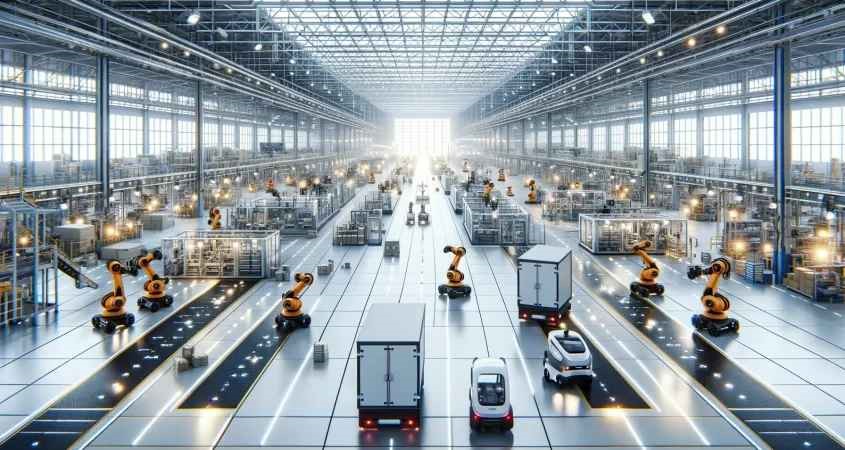 How Industry 4.0 Is Pioneering the Sustainability Revolution in Manufacturing
How Industry 4.0 Is Pioneering the Sustainability Revolution in Manufacturing
In a recent episode of the Sustainable Supply Chain Podcast, I delved into the transformative realm of Industry 4.0 with Ferdi Reynolds of SuperSeed VC. This discussion shed light on the vast opportunities and intricate challenges present within Industry 4.0, underscoring the pivotal roles of innovation, sustainability, and efficiency in overhauling our manufacturing and supply chains.
Industry 4.0 signifies a monumental leap towards integrating physical production with advanced digital technologies, such as AI, IoT, and big data. This integration aims to create a more connected and efficient ecosystem for manufacturing and supply chain operations.
Ferdi Reynolds highlighted the potential of Industry 4.0 to boost the global GDP by a whopping $15 trillion by 2030. This isn't merely optimistic speculation; it's a projection supported by the tangible benefits of digital transformation in manufacturing. For instance, smart factories leveraging IoT technologies can increase productivity by up to 30%, according to PwC's 2018 Global Digital Operations Study.
The transition towards Industry 4.0 has been gradual, revealing a significant opportunity for startups and investors to catalyze change. Innovation in this space is crucial for enhancing manufacturing efficiencies and embracing sustainability. One example is AI's ability to reduce energy consumption in factories, demonstrating a practical application of technology in achieving sustainability goals.
Sustainability is not just an ethical choice but a strategic necessity in the era of Industry 4.0. The World Economic Forum reports that digitalization in logistics and supply chain operations could lead to a 20% reduction in carbon emissions. This shift towards more sustainable manufacturing processes is essential in the face of escalating climate change concerns and the finite nature of our planet's resources.
The adoption of Industry 4.0 technologies facilitates the efficient use of resources, minimizes waste, and reduces energy consumption, thereby diminishing the environmental footprint of manufacturing activities. Moreover, it aligns with the increasing consumer demand for environmentally responsible products, offering a competitive edge to businesses that prioritize sustainability.
The path to fully integrating Industry 4.0 is laden with obstacles, from the complexity of technological integration to the necessity for a skilled workforce. However, the pursuit of a sustainable and efficient manufacturing sector is imperative for economic resilience and environmental stewardship. As the International Energy Agency points out, the industrial sector accounts for a quarter of global energy system CO2 emissions, underscoring the urgent need for sustainable manufacturing practices.
The insights shared by Ferdi Reynolds serve as a primer to the vast landscape of Industry 4.0, where technology meets sustainability. If the prospect of a manufacturing sector that is both economically vibrant and environmentally responsible excites you, I invite you to explore this topic further by listening to our full conversation.
Listen to the full episode here
This is more than a technological revolution; as I have been saying for quite some time now, it's a sustainability imperative. By embracing Industry 4.0, we have the opportunity to redefine manufacturing as a force for good, ensuring prosperity and ecological balance for future generations. Let's embark on this journey together, towards a sustainable industrial future.
Tags: Sustainability, Supply Chain, Manufacturing
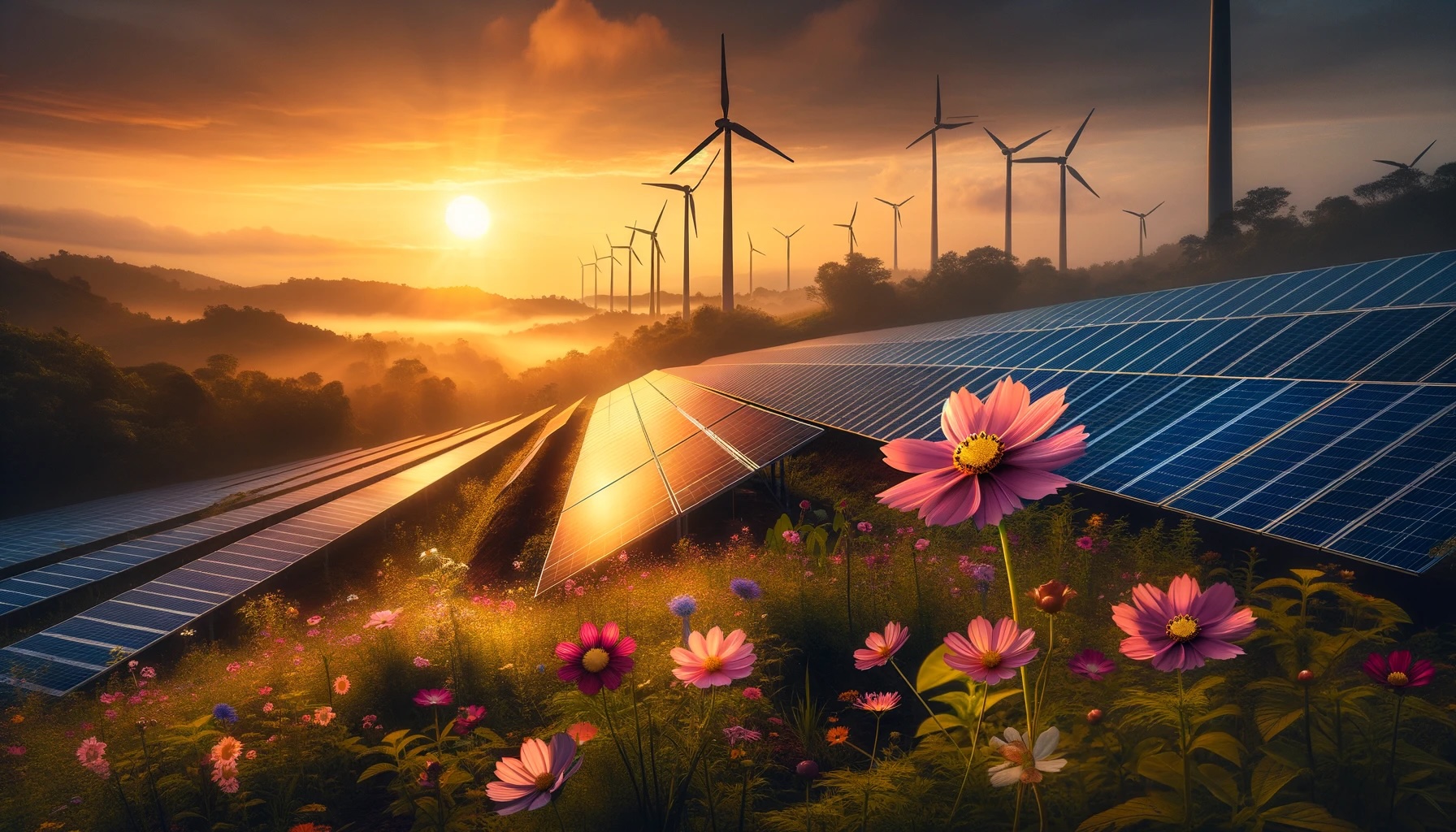 The Transformative Power of Innovative Renewable Energy Projects
The Transformative Power of Innovative Renewable Energy Projects
As the host of the Climate Confident Podcast, I have the distinct privilege of exploring topics at the forefront of sustainability and renewable energy. A recent conversation with Matthew Boulton, Director of Solar, Storage, and Private Wire at EDF Renewables, illuminated the innovative renewable energy projects that are not only spearheading our march towards a net-zero future but also reshaping our societal and economic landscapes with a profound respect for biodiversity.
Renewable energy is pivotal in the global battle against climate change. As we strive to reduce greenhouse gas emissions and curb global warming, the transition to renewable sources like wind, solar, and hydroelectric power becomes imperative. Projects championed by EDF Renewables, such as the Oxford Superhub Project and the Longfield Solar and Battery initiative, exemplify forward-thinking initiatives critical to our climate goals.
The Oxford Superhub Project exemplifies how integrating renewable solutions across sectors can aid a city's net-zero journey, showcasing potential for efficient energy distribution and storage. The Longfield Solar and Battery initiative, not only advances clean energy but also demonstrates a commitment to preserving and enhancing biodiversity. These projects highlight renewable energy's role in creating infrastructures that coexist harmoniously with nature, promoting biodiversity alongside technological advancement.
The significance of renewable energy innovations extends far beyond clean power generation. They spur economic growth, job creation, and technological innovation, offering reductions in energy costs for consumers. Crucially, these projects also present opportunities to bolster biodiversity, with initiatives designed to protect and enhance local ecosystems, proving that energy development and environmental stewardship can go hand in hand.
Achieving a net-zero future is a complex, multifaceted journey that requires cross-sector collaboration. The visionary leadership and strategic planning exemplified in projects discussed with Matthew Boulton underscore the importance of integrating biodiversity enhancement into renewable energy development. This approach ensures that our strides towards sustainability also contribute to the health and resilience of local ecosystems.
As the effects of climate change become increasingly evident, transitioning to renewable energy emerges as a key strategy not only for mitigating these impacts but also for supporting biodiversity. Supporting and scaling up innovative projects that prioritize ecological considerations alongside renewable energy production is crucial.
For those eager to delve deeper into these transformative projects and their broader implications for global climate efforts and biodiversity, I invite you to listen to the full episode of the Climate Confident Podcast featuring Matthew Boulton. Let’s explore how pioneering strategies in renewable energy can pave the way for a cleaner, greener, and more biodiverse world.
Innovative renewable energy projects are more than technical achievements; they are essential steps towards ensuring a sustainable and biodiverse future for our planet. By championing initiatives that integrate ecological well-being with technological progress, we can navigate a path to net-zero emissions while fostering positive economic, social, and environmental impacts. Join us in this vital dialogue and be part of the solution in the fight against climate change, embracing a future where energy and ecology thrive together.
Tags: Climate Change, Renewable Energy, Sustainability
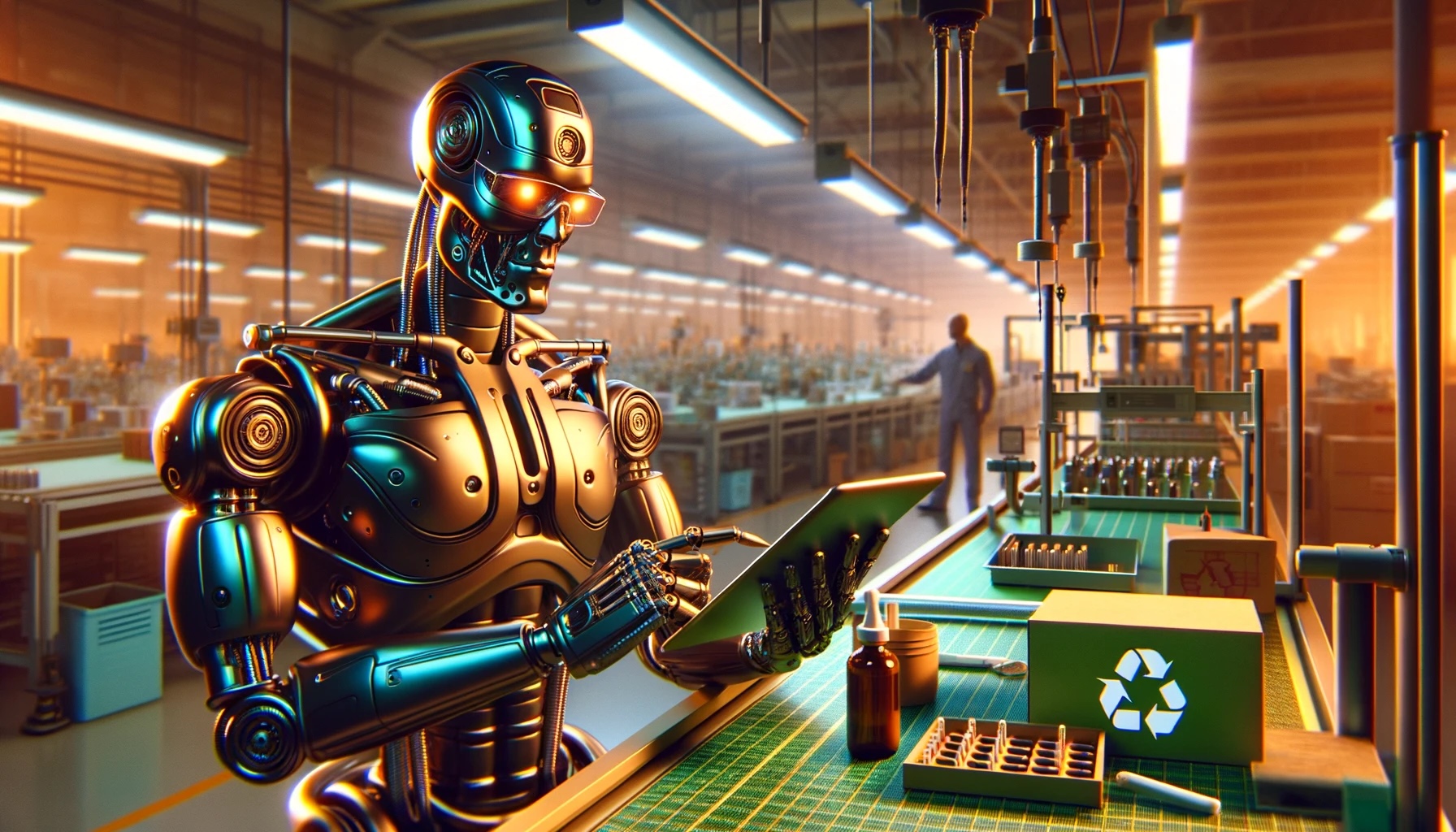 The Pivotal Role of Autonomous AI in Driving Sustainability and Efficiency in Industrial Settings
The Pivotal Role of Autonomous AI in Driving Sustainability and Efficiency in Industrial Settings
In the realm of industrial and manufacturing sectors, the quest for sustainability and operational efficiency is more pressing than ever. As industries worldwide grapple with the dual challenges of environmental sustainability and increasing productivity, the advent of Artificial Intelligence (AI), particularly Autonomous AI, emerges as a beacon of hope. In a recent episode of the Sustainable Supply Chain podcast, I had the privilege of discussing with Bryan DeBois, Director of Industrial AI at RoviSys, about the transformative impact AI is having on these sectors.
Autonomous AI, a subset of AI focused on making decisions and performing tasks without human intervention, is revolutionising how industries approach sustainability and efficiency. Unlike traditional AI, which relies on direct human input and supervision, Autonomous AI leverages advanced algorithms and machine learning to analyse data, learn from it, and make decisions based on its learning, all in real-time.
The significance of this technology in industrial settings cannot be overstated. By integrating Autonomous AI, industries can optimise their operations to reduce waste, conserve energy, and improve overall efficiency. For instance, in the manufacturing of baby formula, the application of Autonomous AI in managing steam usage not only conserves energy but also optimises the production process, ensuring that resources are used more efficiently and sustainably.
Moreover, the role of Autonomous AI in capturing and utilising expert knowledge through machine teaching techniques presents a groundbreaking opportunity. By digitising the expertise of seasoned professionals, industries can address the challenge of knowledge loss due to retirement or attrition, ensuring that valuable insights and best practices continue to enhance operational decisions.
However, the journey towards integrating Autonomous AI in industrial settings is not without challenges. Industries often face obstacles such as operational inertia, risk aversion, and the complexity of implementing new technologies. Yet, the benefits of adopting Autonomous AI — from reducing emissions to improving productivity — make it an endeavour worth pursuing.
The importance of AI in enhancing sustainability in industrial settings extends beyond individual companies to the global economy. As industries adopt AI technologies, they contribute to broader sustainability goals, such as those outlined in the United Nations Sustainable Development Goals (SDGs). For example, by reducing waste and improving energy efficiency, industries not only enhance their own sustainability but also contribute to global efforts to combat climate change and promote responsible consumption and production.
The conversation with Bryan DeBois on the Sustainable Supply Chain podcast shed light on the immense potential and real-world applications of Autonomous AI in driving sustainability and efficiency. This discussion underscores the critical role that AI technologies, particularly Autonomous AI, play in not just transforming industrial operations but also in making significant strides towards a more sustainable and efficient future.
As we look to the future, the integration of Autonomous AI in industrial settings represents a pivotal shift towards achieving environmental sustainability and operational excellence. The potential for AI to drive significant improvements across various sectors is vast, offering hope for a more sustainable and efficient world.
If you're intrigued by the possibilities of Autonomous AI and its impact on sustainability and efficiency in industrial settings, I encourage you to listen to the full episode of the Sustainable Supply Chain podcast. There, Bryan DeBois dives deeper into the practical applications and benefits of these technologies, offering valuable insights for anyone interested in the future of industrial sustainability.
In embracing Autonomous AI, industries have the opportunity to lead by example in the pursuit of sustainability and efficiency, setting the stage for a future where technology and environmental stewardship go hand in hand.
Tags: AI, Supply Chain, Sustainability
 Sustainability Starts with Suppliers: A Deep Dive into Effective Management Practices
Sustainability Starts with Suppliers: A Deep Dive into Effective Management Practices
In today's increasingly interconnected and environmentally conscious world, the management of suppliers has become a cornerstone for companies aiming to meet sustainability and ESG (Environmental, Social, and Governance) compliance objectives. My discussion with Steve Yurko, CEO of apexanalytix, on the Sustainable Supply Chain podcast, provided valuable insights into the complexities of supplier management and its impact on the supply chain's sustainability and security.
Analyzing the role of supplier management through a critical lens reveals its significance in mitigating risks and enhancing supply chain resilience. apexanalytix's approach to leveraging AI and large language models for supplier information management underscores the potential for technology to streamline operations and ensure compliance with ESG criteria. However, the challenge remains in scaling these solutions across diverse and global supply chains.
The importance of robust supplier management extends beyond technological innovation. A study by McKinsey & Company highlights the growing emphasis on transparency in supply chains, noting that companies prioritizing visibility into their suppliers' practices can significantly reduce risks and improve sustainability outcomes. This aligns with the conversation with Yurko, emphasizing the need for comprehensive supplier risk management strategies that encompass environmental, social, and cybersecurity aspects.
Furthermore, the evolving regulatory landscape demands a more analytical approach to supplier management. For example, the European Union's Corporate Sustainability Reporting Directive (CSRD) requires large companies to disclose information on how they manage social and environmental challenges. This regulation highlights the need for effective supplier management systems that can provide accurate and timely data to meet compliance requirements.
Additionally, the concept of "scope 3 emissions" in the Greenhouse Gas Protocol illustrates the critical role of suppliers in a company's overall carbon footprint. Scope 3 emissions, which include indirect emissions from activities such as purchased goods and services, can often constitute the majority of a company's carbon impact. Addressing these emissions requires a detailed understanding of suppliers' operations and their environmental impacts, further underscoring the importance of robust supplier management practices.
Through this analytical perspective, it becomes clear that effective supplier management is not merely a technological challenge but a strategic necessity. Companies like apexanalytix are at the forefront of developing solutions that address these needs, yet the broader adoption of such practices across industries remains essential for achieving global sustainability and ESG goals.
As supply chains continue to face scrutiny from consumers, investors, and regulators, the ability to manage suppliers effectively will become a defining characteristic of successful and sustainable businesses. The insights from our discussion with Steve Yurko offer a starting point for companies seeking to navigate this complex landscape.
For those interested in further exploring the strategic role of supplier management in enhancing supply chain sustainability and security, I invite you to listen to the full episode of the Sustainable Supply Chain podcast. As we delve into the intricacies of supplier relationships, let's keep the conversation going and share insights on leveraging supplier management for a more sustainable future.
Leave your thoughts in the comments below with your views on the importance of supplier management in meeting sustainability and ESG goals.
Tags: Risk Management, Supply Chain, Sustainability
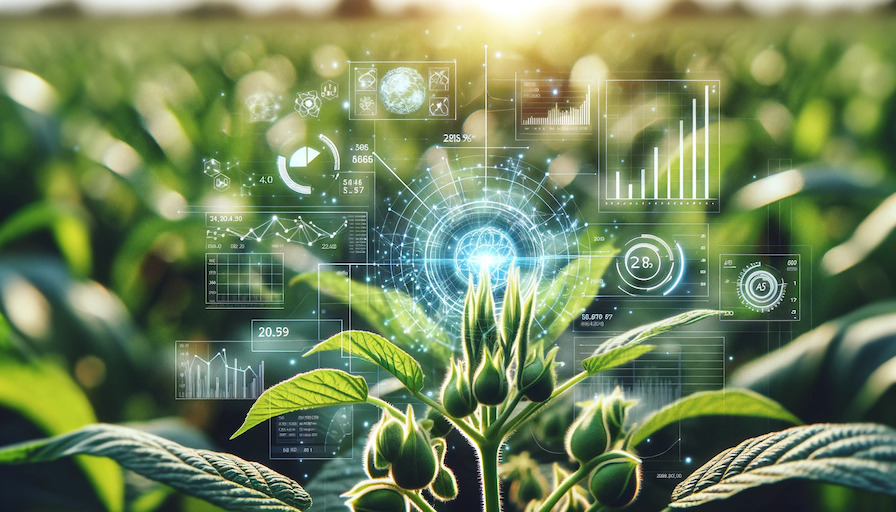 Harnessing Data for a Greener Tomorrow: Biodiversity and the Future of Agriculture
Harnessing Data for a Greener Tomorrow: Biodiversity and the Future of Agriculture
In an era where climate change looms large, a silent yet significant player in the quest for sustainability is often overlooked: agricultural data. My engaging discussion with Davide Ceper, CEO of Varda, on the Climate Confident Podcast, shone a light on this crucial aspect, delving into how data sharing in agriculture is not just a technological advancement, but a beacon of hope for biodiversity and environmental preservation.
Agriculture, while being a life-sustaining industry, is also a major contributor to global greenhouse gas emissions. It's a diverse and sprawling sector, deeply interwoven with the fabric of our ecosystem. Here lies an untapped potential – using data to transform agriculture into a force for ecological balance and biodiversity conservation.
Varda's initiatives such as Field Id and SoilHive exemplify this potential. Field ID's approach to standardizing field identification simplifies data sharing, enabling more informed and sustainable farming practices. Soil Hive, focusing on the health of the soil, plays a critical role in preserving biodiversity. Healthy soils are a foundation of diverse ecosystems, supporting varied plant and animal life, crucial for ecological balance.
The urgency of integrating biodiversity into agricultural practices is underscored by alarming statistics from the United Nations: approximately 75% of the world's food is generated from only 12 plants and five animal species, highlighting a dire lack of biodiversity. Diverse ecosystems are more resilient and productive, thus enhancing biodiversity in agriculture not only supports our environment but also ensures long-term food security.
Data-driven agriculture can lead to precision farming, where resources are used judiciously, reducing the overuse of fertilizers and pesticides, which are harmful to the diverse species that sustain our ecosystems. By mapping and understanding the intricate patterns of land use, crop rotation, and local ecosystems, farmers can adopt practices that support biodiversity, such as planting cover crops and creating habitat corridors.
In our podcast episode, Davide Ceper articulately unpacks how Varda’s work is pivotal in this data revolution in agriculture. However, this is just scratching the surface. The full potential of agricultural data sharing extends to enhancing biodiversity and building a far more resilient agricultural ecosystem.
If this intersection of technology, agriculture, and biodiversity sparks your interest, I urge you to listen to the full episode of the Climate Confident Podcast. It’s not just an exploration of agricultural innovation but a deep dive into the future of farming in harmony with nature.
Let's not forget, the path to a sustainable and biodiverse future is a collective journey. Every bit of data we harness in agriculture takes us a step closer to a world where farming is synonymous with nurturing biodiversity.
Together, let’s sow the seeds for a future where agriculture and biodiversity thrive in unison.
Tags: Big Data, Climate Change, Sustainability
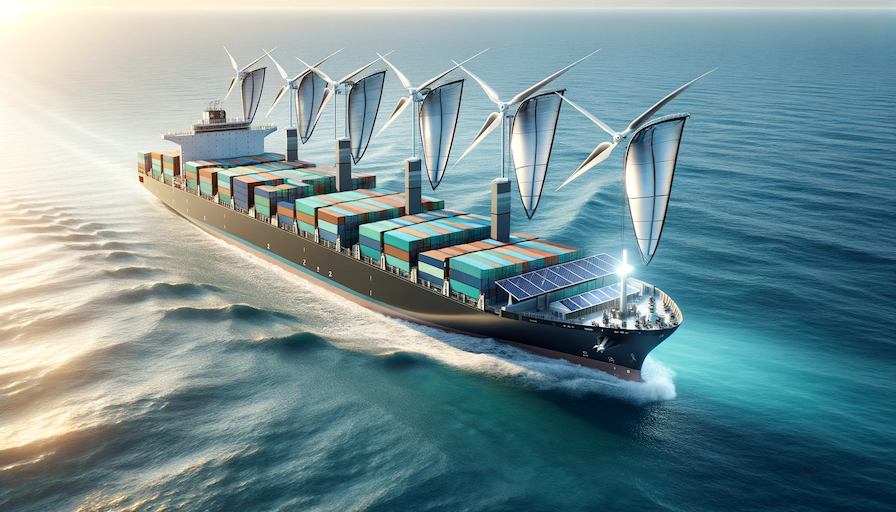 Decarbonising Shipping: Steering Towards a Sustainable Future
Decarbonising Shipping: Steering Towards a Sustainable Future
As a supply chain sustainability expert and the host of the newly minted Sustainable Supply Chain Podcast, I often delve into the intricacies of how the industry can pivot towards greener practices. The topic of reducing emissions from shipping, a crucial component of global trade, is especially close to my heart. In a recent episode with Gautam Jain, CEO and co-founder of GoComet, we uncovered some eye-opening insights on this very subject.
The shipping industry is a linchpin of global commerce, responsible for transporting a staggering 90% of the world’s trade. However, it's also a significant contributor to global carbon emissions. According to the International Maritime Organization (IMO), shipping accounts for nearly 3% of global greenhouse gas emissions [PDF]. In the face of the escalating climate crisis, reducing these emissions is not just a corporate responsibility, but a global imperative.
My conversation with Gautam Jain highlighted a striking fact: up to 50% of the carbon emission goals set by companies can be achieved by simply opting for better shipping routes and suppliers. This revelation, backed by a McKinsey study, underscores the impact of informed choices in the logistics sector. Companies like GoComet are leading the charge by providing technological solutions that enable smarter decision-making in logistics, empowering businesses to significantly cut down their carbon footprint.
The significance of decarbonising shipping extends beyond meeting regulatory compliances or ticking off CSR checkboxes. It's about transforming an entire industry to operate within the ecological limits of our planet. The shift towards more sustainable practices in shipping is not just about changing fuel types or optimising routes, but about a holistic approach that encompasses everything from vessel design to supply chain transparency.
In recent years, there's been a surge in initiatives aimed at greening maritime transport. For instance, the introduction of low-sulphur fuel regulations by the IMO in 2020 marked a significant step towards reducing air pollution. The industry is also exploring alternative fuels like biofuels, hydrogen, and ammonia, and investing in innovative technologies such as wind-assisted propulsion and energy-efficient ship designs.
However, the journey to a zero-emission future in shipping is fraught with challenges. The transition requires substantial investment, not just in terms of capital but also in developing the necessary infrastructure and regulatory frameworks. Moreover, the global nature of the shipping industry means that international collaboration and alignment of policies are crucial for achieving meaningful progress.
As we navigate this transition, it’s vital to keep the conversation going and to share knowledge and best practices. Listening to experts like Gautam Jain provides valuable insights into how technology and innovation are shaping a more sustainable future in shipping.
If you're interested in exploring this topic further and understanding how technology is enabling sustainable logistics, I invite you to listen to the full episode of the Sustainable Supply Chain Podcast. It’s an enlightening discussion that delves deeper into the strategies and solutions for decarbonising shipping.
Together, we can chart a course towards a greener, more sustainable future, where shipping not only drives global trade but also upholds its commitment to the planet. Let's set sail towards that horizon.
Tags: Emerging Technology, Supply Chain, Sustainability
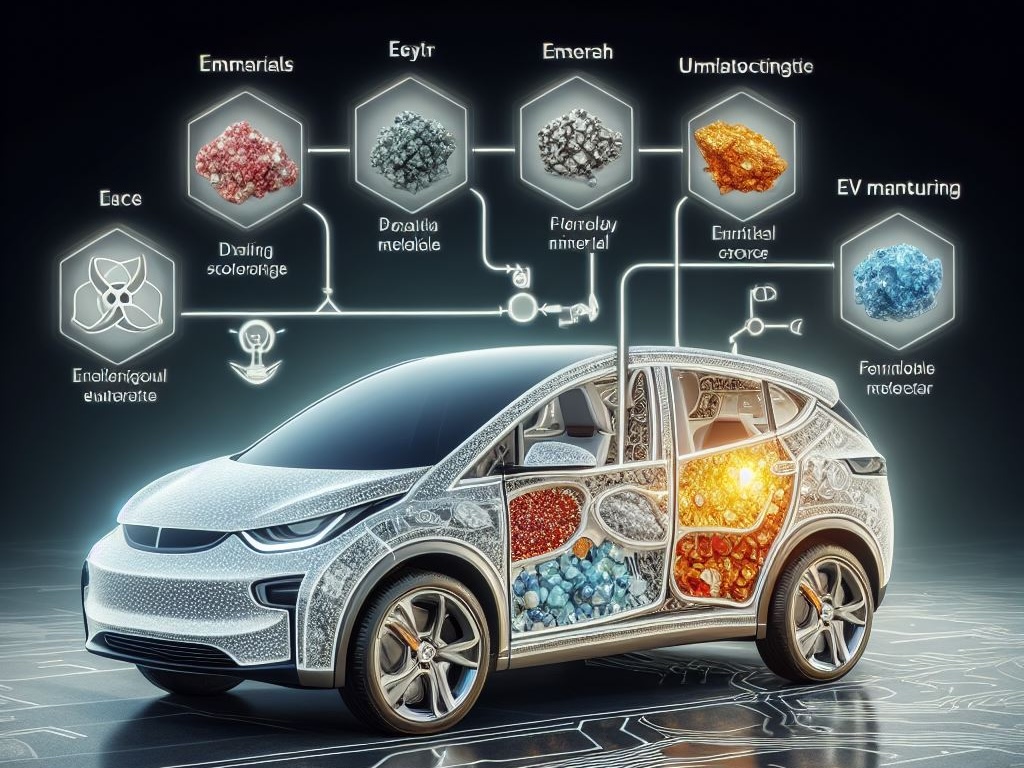 Sustainability Unearthed: How Traceability is Reshaping Supply Chains
Sustainability Unearthed: How Traceability is Reshaping Supply Chains
In a rapidly evolving world, the need for sustainable and ethical sourcing of key minerals has never been more urgent. This was the focal point of my recent discussion with Ellen Carey, Chief External Affairs Officer for Circulor on the Digital Supply Chain podcast. Ellen's insights provided a fascinating perspective on how traceability and transparency in supply chains are not just necessary but revolutionary, especially in the context of sourcing key minerals for a sustainable future.
The journey of a mineral from extraction to product is complex and often shrouded in opacity. This lack of transparency can lead to significant ethical and environmental issues, including forced labor and unsustainable mining practices. Circulor is tackling these challenges head-on by leveraging technology to bring visibility to these complex supply chains. This approach is transformative, particularly in the electric vehicle (EV) industry, where the demand for minerals like cobalt, lithium, and nickel is skyrocketing.
One of the standout points from our conversation was the critical role of digital technology in ensuring the ethical sourcing of these minerals. Circulor's method involves creating a digital twin of the material, providing end-to-end traceability from the mine to the final product. This not only ensures ethical sourcing but also allows consumers and businesses to make informed decisions based on the sustainability credentials of the products they buy or sell.
Ellen highlighted the emerging regulatory landscape, such as the EU's digital battery passport requirement, which mandates comprehensive traceability of the materials used in EV batteries. This regulation is a step towards a more sustainable and ethical global supply chain, ensuring that the clean energy transition is as responsible as it is revolutionary.
The significance of mineral supply chain traceability cannot be overstated. According to the World Economic Forum's 2023 Critical Minerals report, responsible sourcing of minerals is crucial for the transition to a low-carbon economy. The report emphasizes that the traceability of minerals could help reduce CO2 emissions, mitigate the risk of conflict, and improve the lives of mining communities.
Traceability and transparency in supply chains are more than just buzzwords; they are essential strategies for a more sustainable and ethical world. By embracing these strategies, businesses can contribute to a greener future, ensuring that the materials they use are sourced responsibly and sustainably.
To dive deeper into this crucial topic and explore how technology is enabling a more transparent and sustainable future in supply chains, I encourage you to listen to the full episode with Ellen Carey on the Digital Supply Chain podcast. Join us as we explore the transformative power of traceability in supply chains and the impact it has on our journey towards a more sustainable future.
Tags: Digital Transformation, Supply Chain, Sustainability
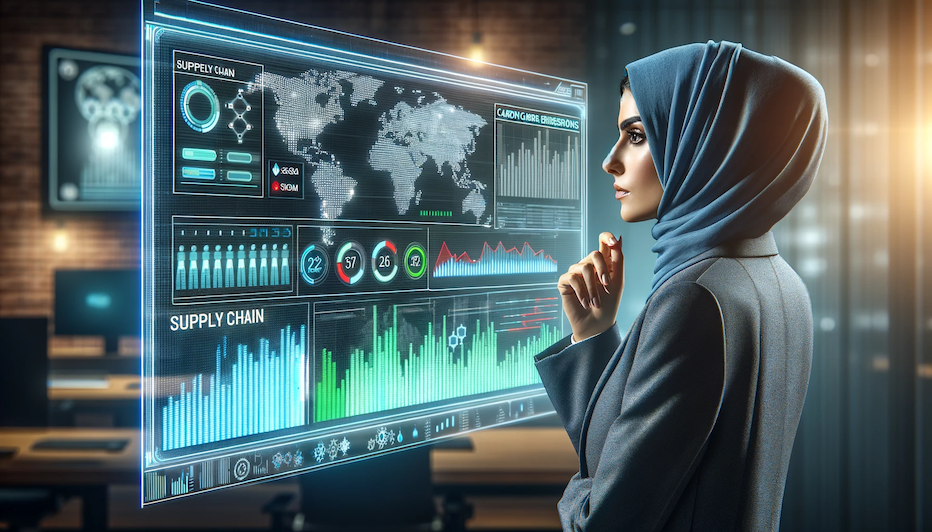 Tackling Scope 3: The Hidden Giant in Supply Chain Carbon Emissions
Tackling Scope 3: The Hidden Giant in Supply Chain Carbon Emissions
As we embark on a new week, with the holidays just around the corner, it’s a poignant time to reflect on the year ahead and our collective journey towards sustainability. In my latest episode of the Digital Supply Chain podcast, I had the privilege of discussing an often-overlooked yet crucial aspect of this journey – the reduction of Scope 3 emissions – with Kristian Rönn, CEO and Founder of Normative.
Scope 3 emissions, for those new to the term, are indirect emissions that occur in a company’s value chain. These include emissions associated with both upstream and downstream activities, encompassing everything from the production of purchased materials to the end-of-life treatment of sold products. Unlike direct emissions (Scope 1) and emissions from purchased electricity (Scope 2), Scope 3 emissions are not always within direct control of an organisation. However, they can account for the majority of a company’s carbon footprint. In our discussion, Kristian pointed out that for many companies, as much as 90% of their emissions can fall under this category.
This staggering figure highlights the hidden challenge in many companies' sustainability efforts. While it’s easier to focus on direct emissions that can be more readily measured and managed, the real impact lies in addressing these indirect emissions. Kristian shared illuminating insights into how businesses can begin to unravel and address their Scope 3 emissions, a task that, while daunting, is essential for meaningful climate action.
The key takeaway from our conversation was the critical importance of visibility and actionability in emissions data. Businesses need to move beyond mere carbon accounting to active carbon management. This involves creating a transparent network across supply chains, where data on emissions can be accurately captured and shared. Such transparency not only holds companies accountable but also empowers them to make informed decisions on where to focus their reduction efforts.
Kristian’s stories of businesses like Eltel and Flying Tiger, who have successfully navigated the complexities of their supply chains to reduce emissions, serve as testament to the potential impact of such initiatives. These examples underscore the fact that, though challenging, meaningful reductions in Scope 3 emissions are possible and, indeed, necessary.
As we look forward to a more sustainable future, it becomes increasingly clear that tackling Scope 3 emissions is not just a corporate responsibility but a strategic imperative. The journey to net-zero is complex and interwoven with challenges, but it's also filled with opportunities for innovation and leadership in sustainability.
If this topic intrigues you and you’re keen to delve deeper into the intricacies of Scope 3 emissions and the innovative strategies companies can employ to reduce them, I encourage you to listen to the full episode with Kristian Rönn. It’s a conversation that not only enlightens but also inspires action towards a more sustainable and responsible supply chain.
Together, let’s continue to push the boundaries of what’s possible in our journey towards a sustainable future.
Tags: Climate Change, Supply Chain, Sustainability
 Digging Deeper with Data: The Tech Transformation of The Commodities Sector
Digging Deeper with Data: The Tech Transformation of The Commodities Sector
In a rapidly evolving world where technology constantly redefines boundaries, the transformation of commodity supply chains through digital innovation stands as a beacon of progress and efficiency. In a recent episode of the Digital Supply Chain podcast, I had the opportunity to discuss this pivotal shift with Andrea Aranguren, CEO of MineHub. Our conversation offered profound insights into the digital metamorphosis of the commodity supply chain, highlighting not just its importance but its necessity in today's global market.
The journey of digitising the commodity supply chain, as Andrea eloquently puts it, is one of revolution rather than evolution. Traditional supply chains, notoriously bogged down by manual processes and paper-based systems, are being transformed into dynamic, efficient, and transparent networks. The integration of digital platforms like those developed by MineHub and Waybridge, which recently merged under Andrea's leadership, exemplifies this transformative shift. These platforms streamline trade management for refined copper and aluminium markets, a critical step given these commodities' global demand.
A key takeaway from our conversation was the significant shift from paper-based, inefficient operations to a digital-first approach. This change isn’t merely about swapping physical documents for digital ones; it's a comprehensive overhaul of how supply chains operate. It's about embracing transparency, enhancing operational efficiency, and significantly, about sustainability – a crucial aspect in today's environmentally-conscious market.
Moreover, Andrea's insights into overcoming resistance to digital change were particularly striking. In an industry often characterised by its adherence to traditional methods, the move towards digital solutions is met with a mix of scepticism and caution. However, success stories like that of Codelco, a leading copper producer, demonstrate the tangible benefits of digital integration – from significant working capital savings to operational efficiencies. Such examples are powerful testaments to the potential of digital platforms in revolutionising supply chain management.
The significance of digital transformation in the commodity supply chain extends beyond operational efficiencies. It's a vital component in the drive towards sustainability and ESG (Environmental, Social, and Governance) compliance. Digital platforms enable companies to track and report on their environmental impact, a growing concern in global trade. In essence, the digital transformation of supply chains is not just a business imperative; it's an environmental and ethical necessity.
As we look forward, the landscape of digital solutions in the commodity sector is poised for further growth and consolidation. Andrea predicts a future where digital solutions expand beyond current markets, offering integrated, holistic solutions across various commodities. This vision is not just about business efficiency; it's about shaping a more sustainable, transparent, and efficient global trade environment.
For those keen to delve deeper into this fascinating world of digital supply chain transformation, I invite you to listen to the full podcast episode. Andrea's insights are not just enlightening; they're a clarion call for the industry to embrace the digital future.
The digital transformation of the commodity supply chain is more than a trend; it's a pathway to a more efficient, sustainable, and transparent global trade. Embracing this change is not just an option; it's an imperative for future success.
Tags: Digital Transformation, Supply Chain, Sustainability
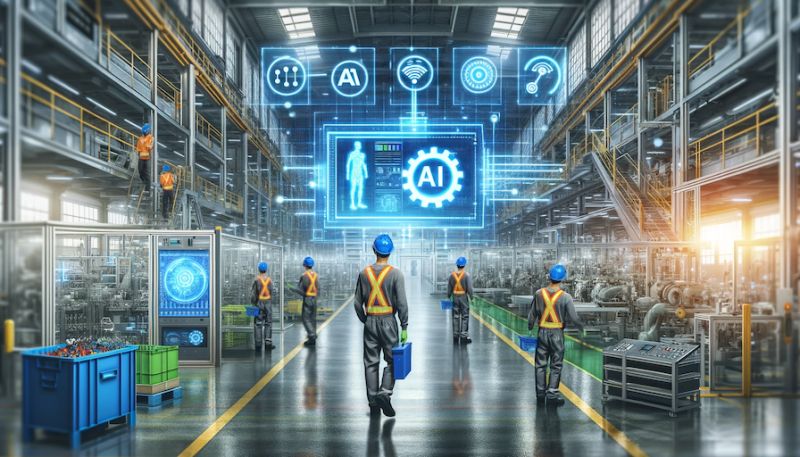 The Pivotal Role of Technology in Enhancing Environmental Health and Safety
The Pivotal Role of Technology in Enhancing Environmental Health and Safety
In the realm of Environmental Health and Safety (EHS), the winds of change are blowing strong and steady. As the host of the Digital Supply Chain podcast, I recently had the privilege of delving into this topic with Donovan Hornsby, Chief Strategy Officer at Benchmark Gensuite. Our conversation illuminated the profound impact that technology, particularly AI and data management systems, is having on EHS practices. This post aims to share some of these insights and explore the transformative power of technology in EHS.
Historically, EHS has been about compliance and reactive measures. However, as Donovan eloquently put it, we are now witnessing a seismic shift towards proactive risk management, powered by technological advancements. The integration of AI and computer vision into safety protocols isn't just innovative; it's revolutionary. By predicting potential hazards and preventing accidents before they occur, we are not only safeguarding lives but also fostering a more sustainable and responsible business environment.
One of the most striking takeaways from my conversation with Donovan is the role of AI in redefining risk management. AI’s ability to analyse vast amounts of data and identify potential hazards is a giant leap forward from traditional risk assessment methods. This isn't just about replacing human judgment; it's about augmenting it with machine precision to create safer workplaces. Imagine a world where every potential risk is identified and mitigated before it becomes a problem. That's the power of AI in EHS.
During the podcast, we didn't delve deeply into IoT and wearables, but these technologies are worth noting for their impact on EHS. Wearables equipped with sensors monitor environmental conditions and physiological data, providing real-time alerts to potential hazards. The growth in this sector, as reported by Verdantix, underscores their increasing importance in worker safety.
Another key aspect we discussed is the role of robust data management systems. These systems serve as the backbone of modern EHS strategies, enabling organisations to move away from siloed and inefficient processes. By centralising data and making it accessible and actionable, companies can not only comply with current regulations but also anticipate future changes and adapt accordingly. It's about building a sustainable and resilient EHS culture that extends beyond the confines of compliance. Further, a unified EHS platform can track sustainability metrics, aiding in a company's journey towards reduced carbon footprint and environmental stewardship.
The integration of technology in EHS is a journey toward a safer, more sustainable workplace. As discussed with Donovan, these advancements empower organisations to move beyond traditional compliance models, fostering a proactive safety culture.
To explore these concepts further and hear our full discussion, I invite you to listen to this episode of the Digital Supply Chain podcast.
As we navigate this path, it's clear that technology is not just an enabler but a necessary catalyst for building safer, more responsible business environments. Embracing these innovations is imperative for any organisation committed to safety and sustainability.
The future is not only about meeting standards; it's about setting new ones.
Tags: AI, Sustainability, Supply Chain
 From Space to Earth: Satellite Tech's Role in Sustainable Supply Chains
From Space to Earth: Satellite Tech's Role in Sustainable Supply Chains
In the ever-evolving world of technology, it's easy to be dazzled by the latest gadgets and innovations. But sometimes, it's the overlooked tools, the silent movers and shakers, that truly make a world of difference. Case in point? Satellite data. On a recent episode of the Digital Supply Chain podcast, I had the pleasure of discussing with Sven Przywarra, Co-CEO of LiveEO, the game-changing impact of satellite data on our planet, particularly in the context of reducing deforestation.
Deforestation is a pressing concern. As Przywarra pointed out, forests are being cleared at an alarming rate, primarily for agricultural commodities. This not only disrupts the balance of our environment but severely affects global supply chains. The European Union (EU), acknowledging this issue, recently introduced its Deforestation Regulation. This piece of legislation has the potential to be as transformative as GDPR, pushing for global compliance, even if you're outside the EU. Simply put, if you're doing business with or within the EU, this regulation will be on your radar, regardless of your business size or location.
Enter LiveEO. This company is integrating satellite data with supply chain solutions. Instead of reinventing the wheel, they integrate directly, enhancing existing supply chain software by giving them a geospatial component. This satellite data helps businesses monitor and prove their deforestation-free status. And in today's age, where investors and consumers are becoming more environmentally conscious, having this verification can be a significant boon for any business.
It's heartening to see companies take a proactive stance in supporting such environmental initiatives. Przywarra's insights made it clear that satellite data isn't just about mapping or navigation; it's a powerful tool that, when wielded correctly, can ensure the sustainability of our planet and the integrity of our supply chains. The sheer scalability and potential of this tool are astounding. Think about it: from initially focusing on infrastructure sectors to now pivoting towards a global cause like deforestation, satellite data has proven its versatility and impact.
In the episode, Przywarra highlighted that this is just the beginning. There's already talk of expanding the categories covered by the EU Deforestation Regulation, and companies globally will need to adapt. As for LiveEO, they have a vision of becoming a platform company, opening up their APIs for more innovations. It’s not just about ensuring business continuity; it’s about protecting our environment, our economy, and our future.
To sum it up, satellite data, is rapidly becoming an unsung hero in our fight against environmental degradation. It's a fusion of tech and sustainability that excites me, and I truly believe it's a pivotal step towards making the world a better place.
Ready to dive deeper into this fascinating topic? Check out the full episode on the Digital Supply Chain podcast to get the full scoop on the transformative power of satellite data. And if you’re as passionate about sustainability as I am, stay tuned for more insights and discussions. Because together, armed with knowledge and technology, we can indeed change the world.
Find out more about EU Deforestation Regulation.
Stay informed, stay inspired.
Tags: Analytics, Supply Chain, Sustainability
 Inspirational keynote talks on innovation
Inspirational keynote talks on innovation
Location: Global Date Available: June 15th, 2018 Fees: Travel and Expenses covered
Submission Date: June 15th, 2018 Service Type: Service Offered
 Available for technology related interviews
Available for technology related interviews
Location: Virtual Date Available: June 15th, 2018 Fees: €0
Submission Date: June 15th, 2018 Service Type: Service Offered
 Inspirational keynote talks on innovation
Inspirational keynote talks on innovation Available for technology related interviews
Available for technology related interviews